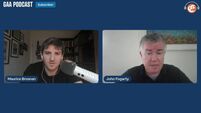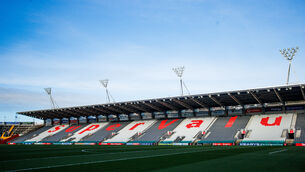Cahill plots to upset native county
Tuesdays aren't too bad. For long stretches, it is just himself, the open road and his thoughts on Antrim hurling. He can make it from Tipperary to Belfast in four hours on the really quiet days.
In hurling terms, the distance between the two may be even greater. Dinny Cahill will find out on Sunday, as he takes on his native county in the












